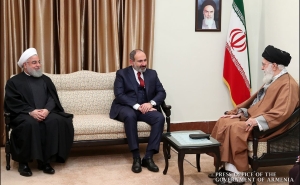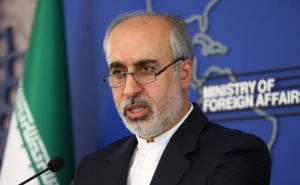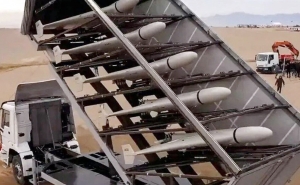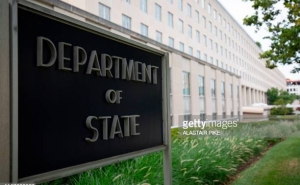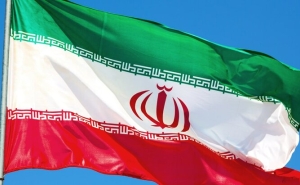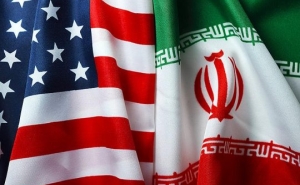China: New Middle East Strategy
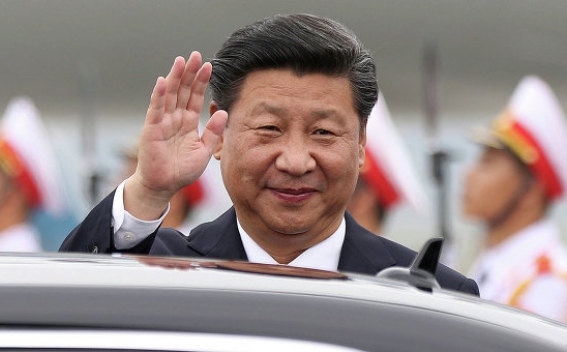
Chinese President Xi Jinping completed his two-day official visit to Iran. It was the last stop of his Middle Eastern tour, which began on January 19. Xi Jinping has already visited Saudi Arabia and Egypt. China’s goal is energy and security.
According to Reuters, the two countries agreed to increase bilateral trade more than 10-fold to $600 billion in the next decade. "Iran and China have agreed on forming strategic relations (as) reflected in a 25-year comprehensive document," President Hassan Rouhani said at a news conference with Xi broadcast live on state television. Iran and China signed 17 accords on Saturday, including on cooperation in nuclear energy and a revival of the ancient Silk Road trade route.
It should be noted that the energy is one of the main elements in Iran-China relationship. China buys about 40% of the Iranian exported oil. More than 100 Chinese companies have representation in Iran.
Taking into consideration the fact that Xi Jinping is the first international leader to visit Iran after the lifting of Western sanctions, experts say he aims to raise the bilateral relations to a new level, leaving behind potential competitors.
Chinese President has already held very productive meetings in two other key countries in the Middle East. During the meeting with the Egyptian President Abdel Fattah Al-Sisi two leaders announced about the establishment of a strong strategic partnership. As a result of the implementation of agreements, signed in energy, industrial, commercial, banking and other sectors, the total investment volume in the Egyptian economy by China will reach over 15 billion US dollars.
It should be noted that a day before the Chinese President’s Middle Eastern tour the country’s government for the first time in its history published a document on strategic relations with the Arab world. Basically, China expressed its readiness to comprehensively strengthen its relations with Arab states.
China’s such activity has become the reason for some Western analysts to say that China tries to replace the United States in the Middle East, fill the political vacuum in the region. In reality it is more realistic that the Middle Eastern region has strategic importance for China because of its energy resources. Thus, China is greatly interested in stability in this region, and all its moves are aimed at this objective.
-
 17:08
17:08The regular session of the Anti-corruption Policy Council takes place in Jermuk
-
 15:05
15:05The Prime Minister sends congratulatory messages to the supreme leader of Iran and the President of Iran
-
 11:11
11:11Armenia sends earthquake aid to Turkey
-
 10:43
10:43Commemoration of the Pontiff St. Sahak Partev
-
 09:16
09:16Some roads are closed and difficult to pass in Armenia
-
 19:55
19:55Phone conversation of the Foreign Minister of Armenia with the U.S. Assistant Secretary of State for European and Eurasian Affairs
-
 18:30
18:30Prime Minister Pashinyan and President Khachaturyan meet
-
 18:20
18:20Ararat Mirzoyan with Co-Chairman of the OSCE Minsk Group of France Brice Roquefeuil
-
 17:01
17:01Humans could land on Mars within 10 years, Musk predicts
-
 16:45
16:45France, US urge 'immediate' end to Nagorno Karabakh blockade
-
 16:01
16:01Blockaded Nagorno Karabakh launches fundraiser to support quake-hit Syria
-
 15:59
15:59Earthquake death toll in Turkey rises to 18,342
-
 15:43
15:43Ararat Mirzoyan Held a Telephone Conversation with Sergey Lavrov
-
 15:06
15:06French president rules out fighter jet supplies to Ukraine in near future
-
 14:47
14:475 Day Weather Forecast in Armenia
-
 14:44
14:44President Vahagn Khachaturyan wrote a note in the book of condolences opened in the Embassy of Syria in Armenia
-
 14:20
14:20Azerbaijan’s provocations impede establishment of peace and stability – Armenian FM tells Russian Co-Chair of OSCE MG
-
 12:57
12:57France representation to OSCE: Paris calls on Azerbaijan to restore freedom of movement through Lachin corridor
-
 11:40
11:40Command of Kosovo forces highly appreciated preparation of Armenian peacekeepers
-
 10:16
10:16The United States withdrew from sanctions against Syria for six months the provision of assistance after the earthquake
day
week
month
Humidity: %
Wind: km/h


